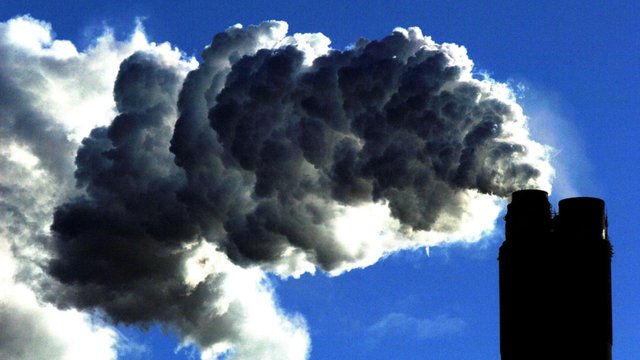Oxfam Calls On First Minister To Show 'Global Leadership' On Climate Change
2 November 2017, 06:29

Nicola Sturgeon is being urged to show "global leadership" on climate change by stepping up Scotland's efforts to reduce emissions.
Campaigners at Oxfam made the plea as they published a new report on the "terrifying global reality" of the problem - which they say hits the most vulnerable people in the world the hardest.
Oxfam Scotland is now calling on the Scottish Government to set a zero net emissions target - where the amount of greenhouse gases produced is not greater than those which are removed by measures such as planting forests and carbon capture and storage.
The Scottish Government is already proposing a 90% cut in emissions by 2050 - up from the 80% it had originally set out in legislation.
Speaking ahead of global talks which get under way in Bonn, Germany, on Monday November 6, Lisa Stewart, campaigns and communications manager at Oxfam Scotland, argued further action was necessary.
She said: "Scotland must send a clear message ahead of these talks that we reject any back-sliding on climate change and, in doing so, the First Minister has the opportunity to cement Scotland's reputation on climate justice whilst demonstrating substantial global leadership."
Ms Sturgeon is due to take part in the discussions in Bonn and Ms Stewart added: "The First Minister has promised to show global leadership on climate change and now she must live up to her words by committing Scotland to a target of zero net emissions.
"Only a zero-carbon future can stop communities and countries from being wiped off the map."
Research by Oxfam showed people living in poorer countries were more likely to have to leave their home because of "supercharged storms, more intense droughts, rising seas and other impacts of climate change".
On average, 21.8 million people each year were forced to move as a result of " sudden-onset extreme weather disasters", according to the charity.
Its report said: "Extreme weather disasters affect all countries, rich and poor.
"While nowhere is immune, people in poorer countries are much more likely to be forced to move.
"Oxfam's analysis of the historical data reveals that on average people in low- and lower-middle-income countries are five times more likely to be displaced by sudden-onset extreme weather disasters than people in high-income countries."
It estimated that 3.2 million people in poorer countries had been displaced by "extreme weather disasters" in the first nine months of 2017 - with more than half of these people being affected by drought.
"Those least responsible for climate change are bearing the brunt of its impacts and have fewest resources to cope with these new realities," the report said.
"The disproportionate incidence and impact of climate change-related displacement both stems from and further drives inequality."
Oxfam said the first priority must be more rapid reductions in global climate pollution in a bid to keep temperature rises to 1.5C (2.7F).
Ms Stewart stated: "Around the world, climate change is eating away shores and flooding homes.
"It's leaving farmland bone-dry, shattering the lives of millions who did virtually nothing to cause it.
"It's unconscionable to leave poor communities alone to deal with disasters they did not create.
"If we're going to tackle this terrifying global reality and stop more people being forced from their homes, then we need our leaders to deliver bold and decisive action at national level."
A Scottish Government spokeswoman said: "Over the past ten years, Scotland has been at the forefront of the global fight against climate change and continues to lead the UK in reducing greenhouse gas emissions with our recent Programme for Government including bold new commitments on low-carbon transport, infrastructure and energy efficiency.
"The Scottish Government intends to introduce a new Climate Change Bill with even more ambitious targets in direct response to the Paris Agreement.
"We received almost 20,000 responses to our consultation on the proposed new targets, which are in line with the evidence based advice from the Committee on Climate Change, and we are taking time to consider the responses."






